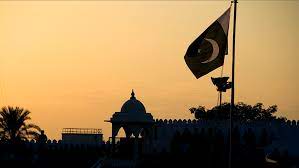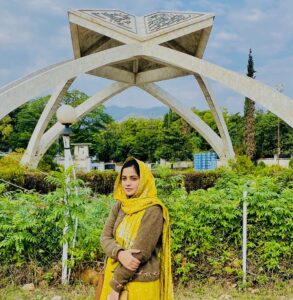
 Malaika Sarwar
Malaika Sarwar
The founding leaders of Pakistan envisioned a political system that would truly represent all its people, regardless of their social status, religion, or economic background. They incorporated the idea of democracy into the 1949 Objectives Resolution, which emphasized that the state should exercise its authority through elected representatives chosen by the people. This democratic vision has been a fundamental principle in all three constitutions of Pakistan. Nonetheless, the establishment of a stable democracy in Pakistan greatly hinges on the way elections are conducted.
Opposition parties in Pakistan have consistently criticized nearly all general elections, alleging widespread electoral manipulation. Citizens express concerns about polling staff engaging in biased practices, such as favoring voters affiliated with a specific party while restricting others.
The Election Commission of Pakistan (ECP) faces criticism for being perceived as biased and nepotistic. Unfortunately, significant gaps in the electoral system persist, even after previous reform efforts, and these issues remain unaddressed.
In terms of recent developments in electoral politics in Pakistan, the discourse begins with Imran Khan's ouster and the appointment of a new government. In April 2022, Imran Khan was ousted as Prime Minister of Pakistan through a no-confidence motion. There are two main camps in this debate: those who believe that the elections should be held as soon as possible to address the challenges Pakistan is facing, such as the economy, security, and relations with neighboring countries. They also argue that the current government is illegitimate, as it came to power through a no-confidence motion which they believe was illegal, and those who believe that the elections should be delayed until the country's political situation has stabilized as the country is unstable to hold elections at this time and argue that the Election Commission of Pakistan needs more time to prepare for the elections . They also point to the recent protests by PTI supporters, which have turned violent in some cases.
The former cricket star turned Islamist politician Imran Khan has staged massive rallies to demand a snap general election (along the way, he also survived an apparent assassination attempt). On the other hand, the ruling coalition has steadfastly insisted that a national election will not be held until October. In a last-ditch attempt to force the issue, Khan's camp dissolved the provincial legislatures of Punjab and Khyber Pakhtunkhwa in January. Under the constitution, polls must be held within ninety days of dissolution.
The Constitution in its Article 224(2) provides: “When the National Assembly or a Provincial Assembly is dissolved, a general election to the Assembly shall be held within a period of ninety days after the dissolution, and the results of the election shall be declared not later than fourteen days after the conclusion of the polls.” The period of ninety days for holding elections of a dissolved assembly, on the dissolution by a governor, is reinforced by Article 105(3): “Where the Governor dissolves the Provincial Assembly, he shall: (a) appoint a date, not later than ninety days from the date of dissolution, for the holding of a general election to the Assembly.”
So, Khan apparently calculated that the cash-strapped government, crippled by a dire shortage of foreign reserves, would have no choice but to hold nationwide polls simultaneously. But the government has held firm, claiming that it cannot afford to fund elections now and that it cannot guarantee security amid a sharp rise in terrorism. The PTI wants the Election Commission to follow the order and is gearing up to campaign. The ruling coalition, on the other hand, is under intense pressure because it is not ready to go to the polls against the popular Khan.
As Pakistan grapples with a severe economic crisis that threatens a potential financial default, the fractured ruling coalition has increasingly relied on the military to counter the influence of the deposed populist leader, Imran Khan, and suppress street protests. Meanwhile, the military itself faces a difficult choice. Should it continue supporting the coalition government, consisting of outdated, dynastic, and religious parties that have repeatedly failed to deliver on the promises of democracy and equitable economic development? Or should it find a way to control the unpredictable behavior of Imran Khan, allowing him a chance to return as prime minister through a genuinely free and fair election? The military has, for now, chosen to support the coalition by withholding security forces in the name of maintaining law and order. Thus, this reluctance to hold elections, especially in an election year, is draining the coalition's political capital and threatens to disrupt the trend of smooth power transfers that has been observed since 2008. Ultimately, the path forward for Pakistan lies in finding a balance between democratic principles, fair elections, and stability to fulfill the vision of its founding fathers.
The writer is a student in the school of Politics and International Relations at Quaid-I-Azam University, Islamabad. She can be reached at [email protected]





